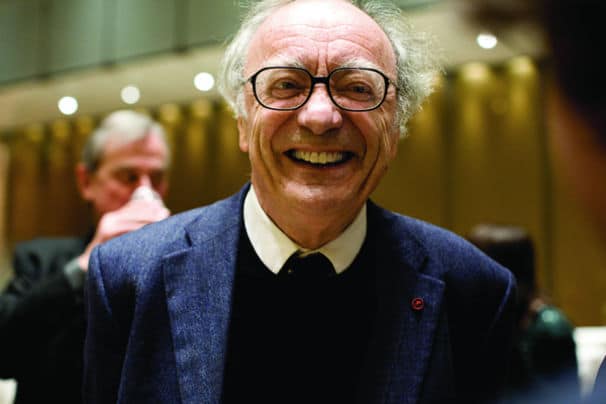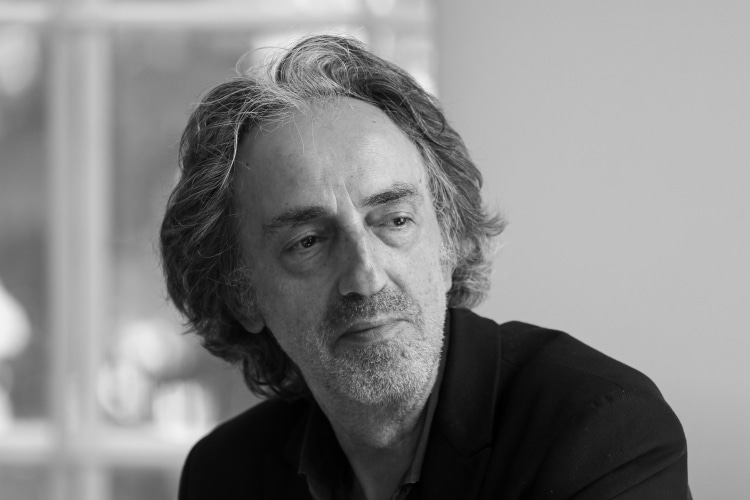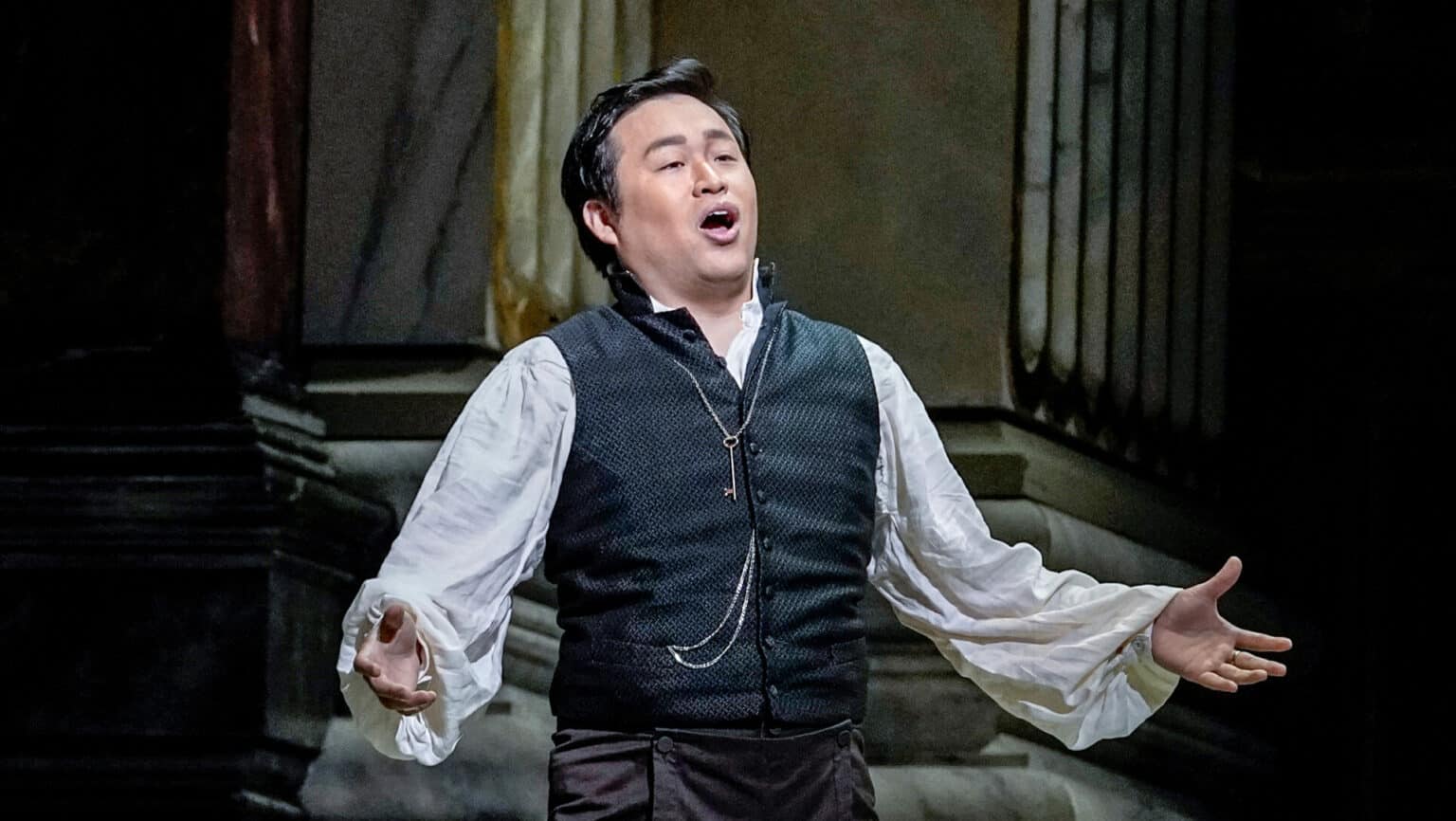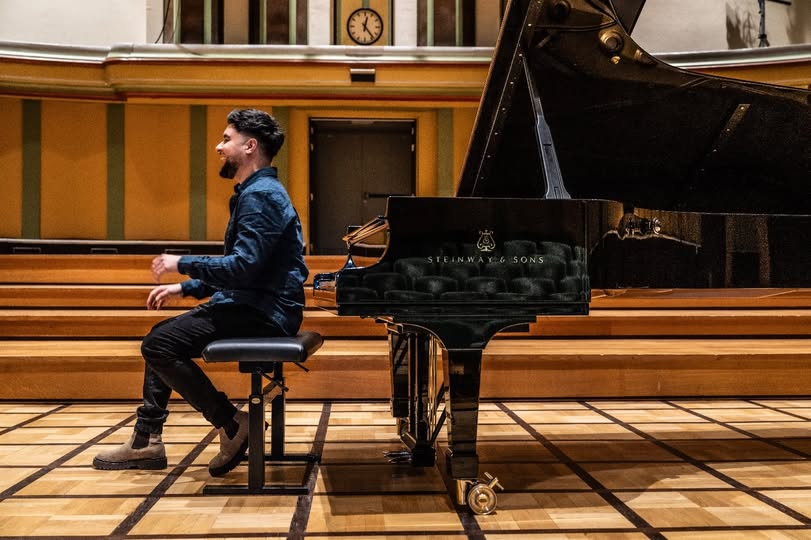Breaking: Berlin Philharmonic to focus on Schoenberg
NewsThe Berlin Phil and Kirill Petrenko have just rolled out their 2023-24 season.
The focal point is:
Across two seasons, we are celebrating the works of Anton Bruckner (on the 200th anniversary of his birth) and Arnold Schoenberg (on the 150th anniversary of his birth). Their works trace the change from late Romanticism to Modernism; an invitation to our audience to draw interesting comparisons and relive this momentous development in the music of the 20th century.
In addition:
Artist in Residence, violinist Lisa Batiashvili will perform with the Berliner Philharmoniker at the Europakonzert in her home country of Georgia, among other events. Jörg Widmann is the new Composer in Residence and will also make his debut conducting the orchestra. Including him, six conductors will be at the helm of the Berliner Philharmoniker for the first time.
The other new conductors are: Eun Sun Kim, Fabio Luisi, Riccardo Minasi, Robin Ticciati and Hannu Lintu






No Tchaikovsky, no Prokofiev…
I’m a longtime subscriber to DCH and admirer of BPO. This upcoming season is a head scratcher. Yet another Mitteleuropafest. The BPO doesn’t need a special celebration of Bruckner & Schoenberg, they program plenty every year (though I like Thielemann’s unusual program). For once, can we please NOT pair Verklaerte Nacht with Tod und Verklaerung?? Will Barenboim cancel both weeks or only one? Will GD make as much of a hash of Mahler 6 (which has been programmed how many times in the past 10 years?) as he did of M2? No American or British composers, no Scandinavians. I’m considering unsubscribing.
Try Reger’s ‘Gesang der Verklaerten’, Op.71.
Has Berlin Philharmonic ever not made a hash of Mahler every time they play his symphonies? I can’t think of single memorable performance in the last 10 years. Their problem is themselves, not whoever is conducting.
Their Mahler 7th, at least as performed in Carnegie Hall, was divine.
We have a recording of that one. They played the notes, no more.
What aload of nonsense.
There’s Blomstedt.
And if NL is quoting Berlin Phil staff, they ought to know better than to describe Bruckner as a Late Romantic or as having had any role in tracing a change to Modernism.
See Dika Newlin’s “Bruckner, Mahler, Schoenberg,” which I read 35 years ago.
It’s hilarious how Petrenko includes Thielemann by sidelining him, having him conduct “Unknown Bruckner”, two symphonies not part of the official count that Bruckner himself called a “student work”, never mind Thielemann just finished recording the entire cycle with Vienna for the same Bruckner 200 anniversary.
How very passive-aggressive.
Whatever. Barenboim is slated for 2 series, he will cancel of course, and Thielemann will take over those anyway.
Thielemann’s presence in Berlin is ineluctable.
Pretty hilarious to believe that Petrenko decides what Thielemann gets to conduct.
Actually not.Given Thielemann´s limited rep.
Must be nice to have public subsidies like in Berlin because there are going to be a lot of empty seats for these.
I can’t remember the last time I saw Schoenberg on an American orchestra program. Ten years ago? Twenty?
You don’t know much about the Berlin orchestra scene, do you? You can find Schönberg on the programmes here half a dozen times each season. Petrenko did his Variations for Orchestra just a few weeks ago.
How well it sells depends on who conducts it. Petrenko can sell out the Philharmonie with two world premieres (by female composers nonetheless) in one night for several evenings in a row weeks in advance, as seen in a concert in June that also includes Tchaikovsky’s Francesca di Rimini which is hardly a work to draw in crowds.
Oh, my: I really need to find that performance of the Variations. If only I could hear it live, in a first-rate performance; it’s high on my bucket list.
Decades in the files only! Shocking, especially considering that Arnold Schoenberg was a great American composer. Anyway, with the exception of Schoenberg’s Violin concerto, the works by the Austrian Arnold Schönberg were better.
To Carl, James Levine did a season with the BSO (2005-2006) coupling Beethoven and Schoenberg. Concerts included Barenboim playing the Schoenberg concerto with Beethoven’s third piano concerto and Christian Tetzlaff playing both violin concertos. Most of Schoenberg’s Orchestral works were heard, as well as Erwatung and Gurrelieder. It was quite a year.
Well, Boston is its own special case. The city is full of tweedy academics who are used to hardcore modernist works. It’s kind of a European outpost in the U.S.
I also wouldn’t hold up Levine as a model for anything. Not your point, I realize, but I cringe at any reference to him.
Well, I see that for the year 2023, Schoenberg has at least 20 performances in America. Not all of these are for orchestra (ie, some are chamber) but I do see orchestral performances in Lubbock TX and Chattanooga TN which probably aren’t the most expected venues for his music.
You simply reveal your own ignorance and lack of knowledge with such sweeping generalizations.
Transfigured Night is firmly in the repertoire. Most American orchestras play it every few years. Variations for Orchestra pops up often too. And the only reason Gurre-Lieder isn’t performed more often is because of cost.
Finally, Schoenberg just didn’t write that much for orchestra — it’s not like there’s this huge catalogue of neglected symphonies, concertos, overtures, etc.
Disagree. Schoenberg is box office poison, and a composer that only academics and other composers can love.
The only reason Transfigured Night occasionally appears is that it’s largely tonal. Gurre-Lieder is a conductor ego-trip piece but not one that would ever put butts in seats.
Ever been to Cleveland????? Schoenberg appears there every season…FWM just did a fantastic performance of the Variations opus 31 a few weeks ago.
Schoenberg’s best work is Alban Berg. Focusing on his accomplishments as a teacher would be the most flattering celebration possible.
So Berlin is devoting a season to two Viennese, ran out of ideas?
No way this program could work (if it does work) anywhere else, not even in Vienna, a season devoted to one 150 year old Viennese and one 200 year old Viennese, whose music is on the fringe of the canon, that excites absolutely no one.
If you one of the Big 5 in the United States programmed a season like that, it would be their last season, they’d be filing bankruptcy.
It just shows the lack of good taste of yankees. We, Europeans, are the TRUE ART LOVERS. Understood, dear red neck ?
What happened with the press conference they used to broadcast online?
go broke without woke.
12-tones, no tunes.
It’s Berlin, without Irving.
It’s Germany without Germans.
19thC Russia is verboten.
Might as well perform Justin Bieber backwards.
Well if some of Schoenberg’s American works are programmed, at least John Maucieri will be happy.
Two words: Robin Ticciati….
OMG!!!
If robin gets to conduct Berlin phil then maybe it’s really the end of classical music ..
Can’t agree more!! Sadly 🙂
New chat
Today
Celebrating Bruckner and Schoenberg.
Response from Chat GPT (A little more positive!)
It’s exciting to hear that your organization is celebrating the works of Anton Bruckner and Arnold Schoenberg across two seasons. Both composers have made significant contributions to the music of the 20th century, and their works mark an important shift from late Romanticism to Modernism.
Bruckner’s music is known for its lush harmonies and grandiose orchestration, while Schoenberg’s works are characterized by the use of atonality and the development of serialism. By exploring the music of these two composers in tandem, your audience will have the opportunity to draw fascinating comparisons and see how the music of the late 19th century transformed into the music of the 20th century.
It’s also interesting to note that both Bruckner and Schoenberg were deeply connected to the city of Vienna, which was a center of musical innovation during this time period. By celebrating the anniversaries of these two composers, your organization is not only paying tribute to their individual achievements but also recognizing the larger cultural and historical context in which their music was created.
Overall, this is a wonderful opportunity for your audience to relive this momentous development in the music of the 20th century and gain a deeper appreciation for the richness and diversity of classical music. I wish you all the best in your upcoming performances and look forward to hearing about the fascinating comparisons that your audience will undoubtedly draw.
I’m sure that will just be wonderful! Will bring me back to my days of being a music student and studying the Schoenberg Variations, violin concerto, Erwartung, Wozzeck, and Pierrot Lunaire for my music degree!
Please god, no more Bruckner. Musical Git-mo.
Sure a lot of Mahler, but it does sell tickets. Nice to see Reger given some time. They’ve done a Schmidt symphony, then last season the Korngold symphony…I keep hoping they’ll pay homage and the Furtwangler 2nd one of these days. And very, very little Russian repertoire – anything to do with the Ukrainian crisis?
Regardless of how readers here feel about Schoenberg in general, I would like to remind folks that Simon Rattle made an excellent disc in Berlin on EMI, consisting of three of Shoenberg’s more accessible works: 1). his kicky orchestration of Brahms’ G-minor Piano Quartet, 2). Schoenberg’s “Accompanying Music to a Cinematic Scene” (Begleitmusik zu einer Lichtspielezene), and 3). the Chamber Symphony no. 1 . . . That’s not to mention the astounding multi-disc set Karajan recorded on DG of orchestral works from Schoenberg, Berg and Webern. Pierre Boulez recorded much of his DG Anton Webern in Berlin as well.